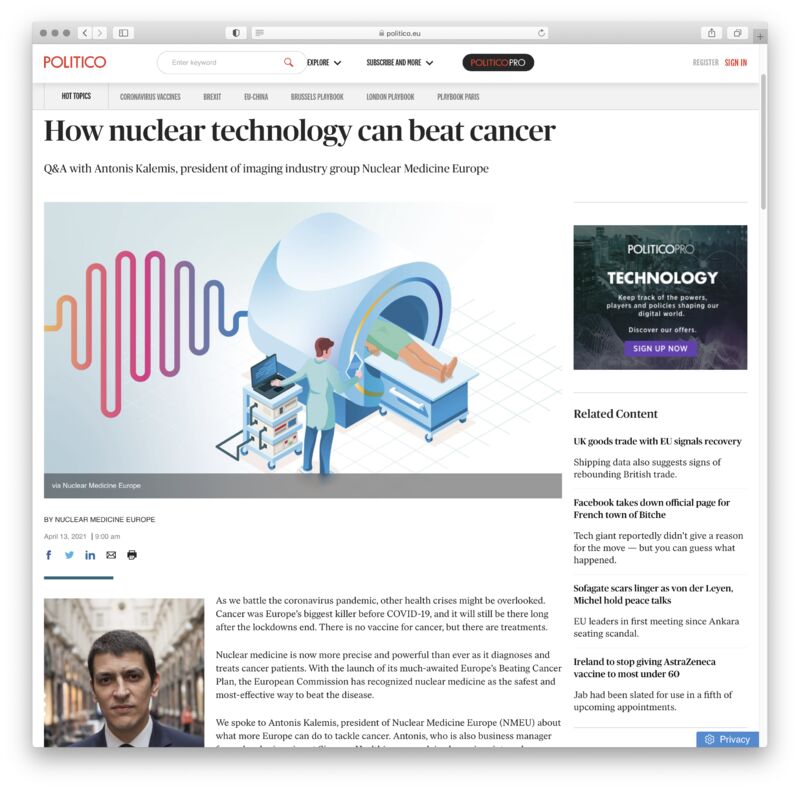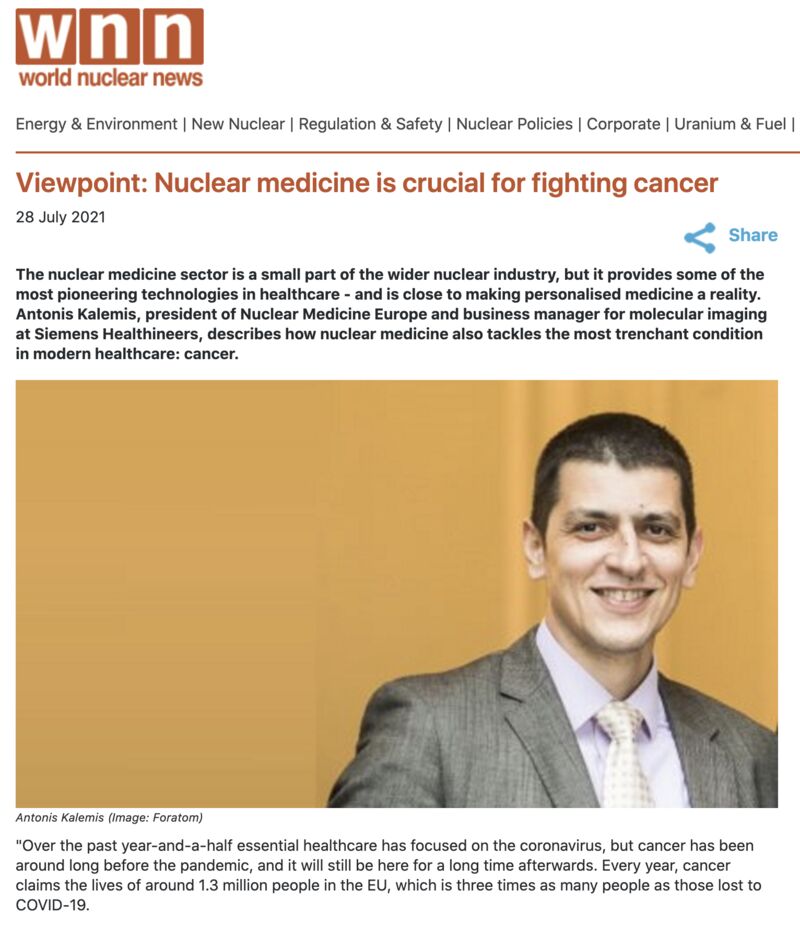Maecenas sed diam eget risus varius blandit sit amet non magna. Cras mattis consectetur purus sit amet fermentum. Cum sociis natoque penatibus et magnis dis parturient montes, nascetur ridiculus mus.
Sed posuere consectetur est at lobortis. Sed posuere consectetur est at lobortis. Etiam porta sem malesuada magna mollis euismod. Maecenas sed diam eget risus varius blandit sit amet non magna. Aenean eu leo quam.
Pellentesque ornare sem lacinia quam venenatis vestibulum. Integer posuere erat a ante venenatis dapibus posuere velit aliquet. Fusce dapibus, tellus ac cursus commodo, tortor mauris condimentum nibh, ut fermentum massa justo sit amet risus.
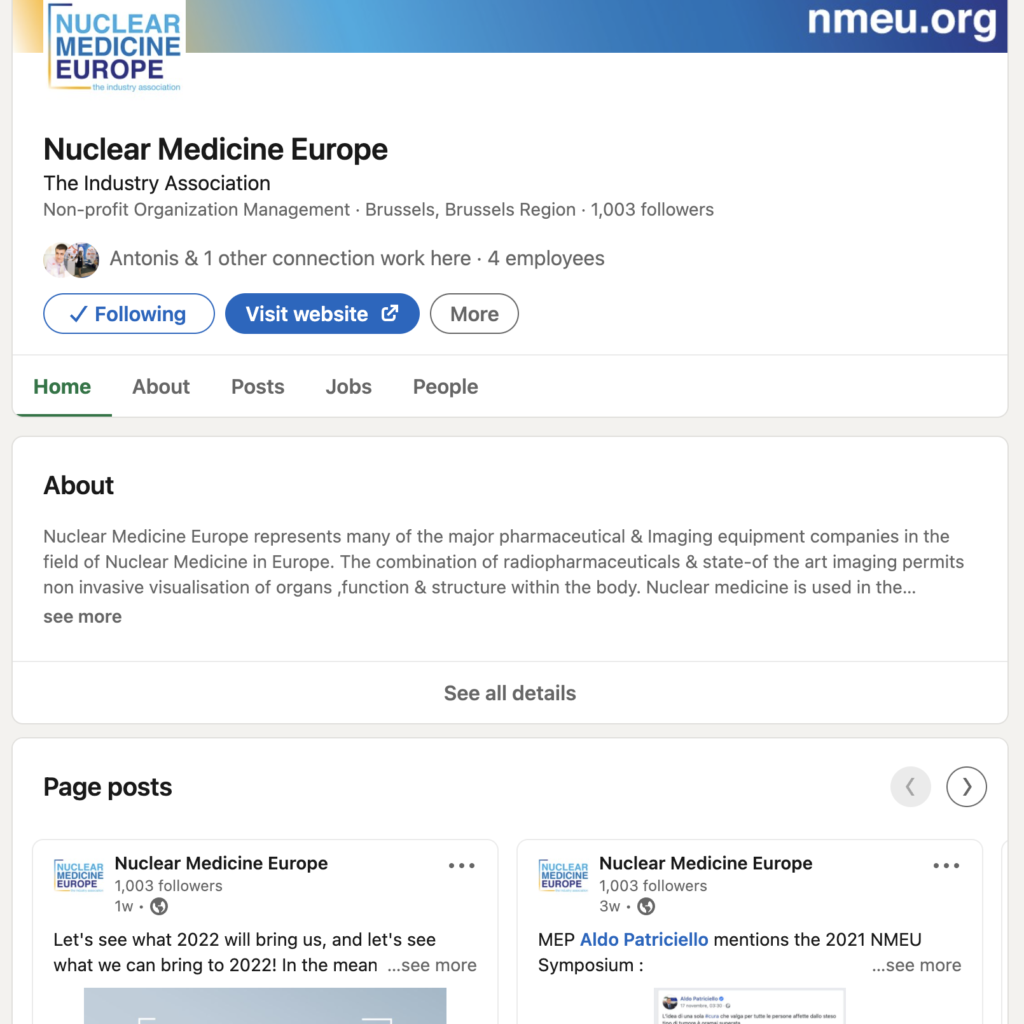
The Nuclear Medicine Europe Linkedin account has now reached more than 1000 followers!
NMEU Symposium 2021
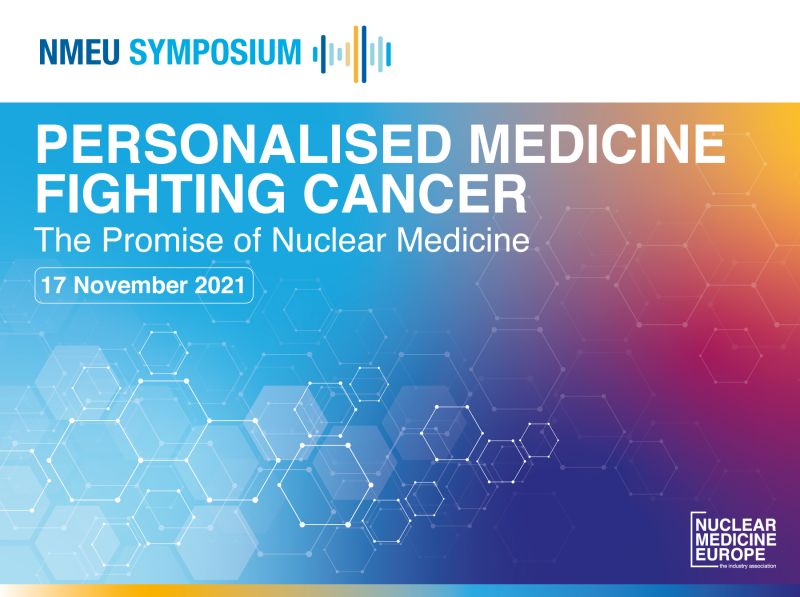
Thank you all for your participation in the successful 2021 NMEU Symposium.
The summary is available to download as well as all the recordings of the event, including an introduction by MEP Maria Da Graça Carvalho and the full patient interview.
The summary of the 2021 NMEU Symposium is available here.
Politico : How nuclear technology can beat cancer
As we battle the coronavirus pandemic, other health crises might be overlooked. Cancer was Europe’s biggest killer before COVID-19, and it will still be there long after the lockdowns end. There is no vaccine for cancer, but there are treatments.
Nuclear medicine is now more precise and powerful than ever as it diagnoses and treats cancer patients. With the launch of its much-awaited Europe’s Beating Cancer Plan, the European Commission has recognized nuclear medicine as the safest and most-effective way to beat the disease.
Lifesaving nuclear medicine applications deserve better recognition and support at EU level
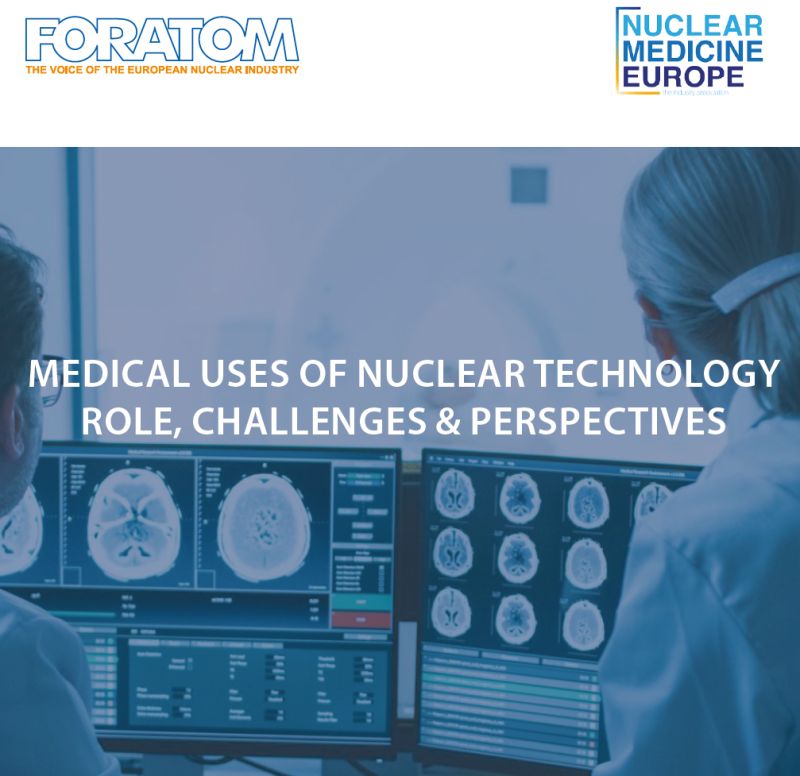
Thanks to medical applications of nuclear technology, Europe’s citizens have access to diagnostic and lifesaving treatment. That is why the European Union – in line with its Europe’s Beating Cancer Plan – should promote new research reactor capacity along with innovation in the sector and the design modification of the current fleet. According to a joint position paper issued today by FORATOM and Nuclear Medicine Europe, these and other recommendations should be implemented to maintain the current level of medical radioisotopes supply.
Find out more
World Nuclear News
The nuclear medicine sector is a small part of the wider nuclear industry, but it provides some of the most pioneering technologies in healthcare – and is close to making personalised medicine a reality. Antonis Kalemis, president of Nuclear Medicine Europe and business manager for molecular imaging at Siemens Healthineers, describes how nuclear medicine also tackles the most trenchant condition in modern healthcare: cancer.
“Over the past year-and-a-half essential healthcare has focused on the coronavirus, but cancer has been around long before the pandemic, and it will still be here for a long time afterwards. Every year, cancer claims the lives of around 1.3 million people in the EU, which is three times as many people as those lost to COVID-19. (…)
Communications Working Group
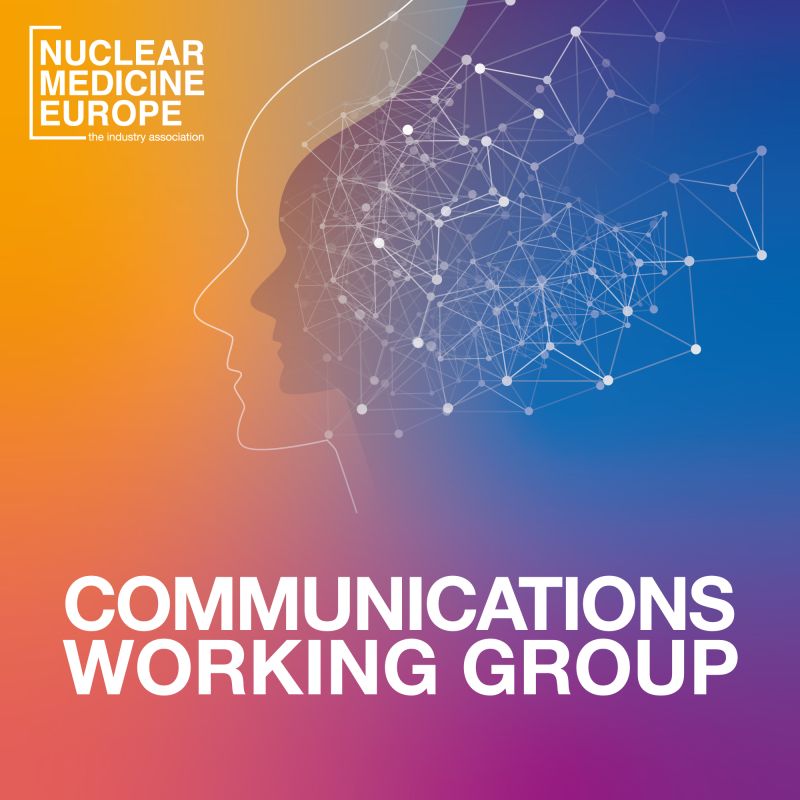
From the start, Nuclear Medicine Europe (ex-AIPES) had based its communication strategy on two targets: the public (the patients) through the successful projects of the Awareness Working Group, and the scientific community (the physicians) with high-quality publications from the Innovation Working Group.
The two Working Groups have now merged into the Communications Working Group, with its own mission statement that you can read here below.
Thanks to each Member who contributed to the successes of the Awareness and Innovations WG over the last 10 years!
Looking forward to working on new projects with the new group members, which are listed here.

